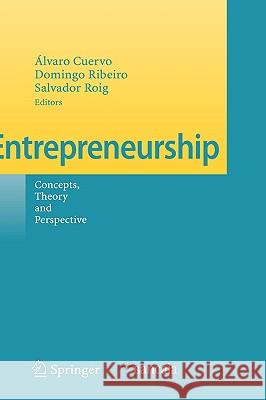Entrepreneurship: Concepts, Theory and Perspective » książka
Entrepreneurship: Concepts, Theory and Perspective
ISBN-13: 9783540485421 / Angielski / Twarda / 2007 / 348 str.
ownership rights of ideas that are not associated with patents or copyrights. There is no legal protection of the different expectations held by entrepreneurs and investors on the economic value of ideas and business opportunities, and of the entrepreneur s need to withhold information that may affect the value of the project. Entrepreneurship is often discussed under the title of the entrepreneurial factor, the entrepreneurial function, entrepreneurial initiative, and entrepreneurial behaviour and is even referred to as the entrepreneurial spirit . The entrepreneurial factor is und- stood to be a new factor in production that is different to the classic ones of land, labor and capital, which must be explained via remuneration through income for the entrepreneur along with the shortage of people with entrepreneurial capabilities. Its consideration as an entrepreneurial function refers to the discovery and exploitation of opportunities or to the creation of enterprise. Entrepreneurial behaviour is seen as - haviour that manages to combine innovation, risk-taking and proactiveness (Miller, 1983). In other words, it combines the classic theories of Schumpeter s innovative - trepreneur (1934, 1942), the risk-taking entrepreneur that occupies a position of unc- tainty as proposed by Knight (1921), and the entrepreneur with initiative and imagi- tion who creates new opportunities. Reference to entrepreneurial initiative underlines the reasons for correctly anticipating market imperfections or the capacity to innovate in order to create a new combination ."











